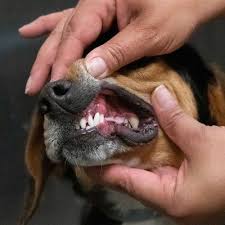
Excerpt:
Taking care of your dog’s dental health is crucial for their overall well-being. This guide offers essential tips for maintaining your dog’s teeth and gums in top condition.
Introduction
Dental health is just as important for dogs as it is for humans. Regular dental care can help prevent serious issues, such as gum disease, tooth decay, and bad breath. Unfortunately, many pet owners overlook their dog’s dental health until problems arise. In this guide, we will walk you through essential dental care practices to ensure your dog has a healthy smile.
1. Why Dental Care is Important for Dogs
Proper dental care for dogs is essential to prevent dental disease, which affects a large percentage of pets. Just like humans, dogs can suffer from plaque buildup and tartar, leading to gum disease and tooth loss. If untreated, dental issues can spread to other parts of the body, potentially affecting your dog’s overall health. Additionally, dental problems can lead to bad breath, making it less enjoyable for you to interact with your pet.
2. Signs of Dental Problems in Dogs
It’s important to be aware of the signs that indicate your dog may be having dental issues. Some common symptoms include:
- Bad breath
- Difficulty chewing or eating
- Swollen or bleeding gums
- Excessive drooling
- Pawing at the mouth or face
- Discolored teeth
- Loss of appetite
If you notice any of these signs, it’s best to consult your veterinarian to address potential dental issues promptly.
3. Brushing Your Dog’s Teeth
One of the most effective ways to maintain your dog’s dental health is by brushing their teeth regularly. Dental brushing removes plaque buildup, preventing the formation of tartar. Ideally, you should brush your dog’s teeth several times a week or, even better, daily.
To brush your dog’s teeth, use a toothbrush designed for dogs and toothpaste made specifically for pets. Avoid using human toothpaste, as it contains ingredients that are harmful to dogs. Start slowly, getting your dog used to the brushing process. Be gentle and patient, gradually increasing the brushing time.
4. Dental Chews and Toys
In addition to regular brushing, dental chews and toys can be great additions to your dog’s dental care routine. Dental chews help remove plaque and tartar while satisfying your dog’s natural urge to chew. There are many products on the market designed to promote oral health, including rubber toys, bones, and chew sticks.
When choosing dental chews, make sure they are appropriate for your dog’s size and chewing habits. Too hard or sharp chews can cause damage to their teeth. Always supervise your dog while they are chewing to ensure their safety.
5. Regular Vet Checkups
Just as with humans, regular dental checkups are crucial for maintaining your dog’s oral health. During these checkups, your veterinarian will examine your dog’s teeth and gums, looking for any signs of dental disease. If necessary, your vet may recommend a professional cleaning to remove plaque and tartar buildup that cannot be addressed with brushing alone.
Professional cleanings are typically done under anesthesia to ensure your dog remains calm and still during the procedure. Regular visits to the vet can help catch dental problems early and prevent costly treatments down the line.
6. Diet and Dental Health
Your dog’s diet plays a significant role in their dental health. Dry dog food is generally better for their teeth than wet food, as it helps scrape plaque off their teeth while chewing. Some commercial dog foods are also formulated with special ingredients to promote dental health.
In addition to their regular food, consider offering healthy treats that help clean your dog’s teeth. Avoid giving your dog sugary or sticky treats, as these can contribute to tooth decay and plaque buildup.
7. Alternative Dental Care Options
If brushing is a challenge, there are alternative options to help maintain your dog’s dental health. Water additives and dental wipes can be used to supplement brushing. These products help reduce bacteria in your dog’s mouth and promote healthier gums. However, they should be used in combination with brushing for the best results.
Some dogs may also benefit from professional dental treatments, such as scaling or polishing, depending on their oral health needs. Your veterinarian can recommend the best essential dental care in dogs guide.
8. Conclusion
Dental care is an essential part of your dog’s overall well-being. By taking proactive steps to maintain their dental health, you can prevent serious problems down the line and be able to enjoy dining out with your furry friend. Regular brushing, dental chews, vet checkups, and a healthy diet are all critical components of a comprehensive dental care routine. For more tips on caring for your pet, check out Furry Talez, a great resource for pet owners.






Leave a Reply